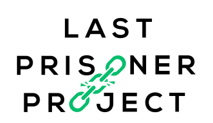WASHINGTON – Last Prisoner Project (LPP) has mobilized the largest coalition of bi-partisan cannabis advocacy, industry, and grassroots organizations, as well as individual activists to convene in Washington D.C. on April 18, 2024, for a 420 Unity Day of Action. A number of lobbying events have been planned to apply public pressure on Congress and the President to take action to fully legalize cannabis, free those still in prison, and provide retroactive relief.
Advocates will be joined by elected officials who have been leading the fight for cannabis reform including Sen. Ron Wyden (D-Oregon), Rep. Earl Blumenauer (D-Oregon), and others to encourage their colleagues on both sides of the aisle to end the hypocrisy of cannabis criminalization.
On April 17, the coalition will hold a press conference at the U.S. Capitol’s House Triangle, organized by LPP, at 8:45 a.m. prior to the start of the National Cannabis Festival Policy Summit at the Martin Luther King Jr. Memorial Library where LPP is hosting Lobby Day Training from 4-5 p.m. in Conference Room 401-F.
On April 18, coalition advocates will convene at the U.S. Capitol Visitor Center Auditorium at 9 a.m. for Lobby Day programming and meetings with elected officials and their staff.
Capping off the 420 Unity Day of Action, the public is invited to attend a candlelight vigil in front of the White House at Lafayette Square on April 18 from 7-10 p.m.
Since announcing the 420 Unity Day of Action, there have been a number of developments that continue to build momentum for cannabis justice. After President Biden mentioned his cannabis actions during his State of the Union address, the White House hosted a roundtable to uplift the Administration’s expanded pardons. Additionally, members of Congress have continued to send letters to the Biden Administration and the DEA to encourage the full descheduling of cannabis.
Although 24 states and D.C. have legalized adult-use cannabis sales and the vast majority of the U.S. population now lives in states with some form of legal cannabis, tens of thousands of people remain in state and federal prison. It is imperative that as the federal government seeks to downgrade cannabis’s status from a Schedule I drug, advocates are pushing for the full legalization and decriminalization of cannabis.
For supporters who can’t make it to D.C. but would still like to join our fight for cannabis justice, we encourage you to contact your elected officials by sending them a letter and calling their offices urging them to decriminalize cannabis now.
420 Unity Day of Action is part of the National Cannabis Festival which takes place at RFK Campus Festival Grounds on April 19th and 20th where directly-impacted advocates will join celebrity voices like M-1 of Dead Prez and JoJo Simmons for multiple panel conversations with partners on how we can push the movement forward. This will culminate with headlined concerts by Thundercat and Wu-Tang Clan with Redman.
The broad array of advocate groups spans across political boundaries and includes:
- Last Prisoner Project
- Drug Policy Alliance
- Students for Sensible Drug Policy
- NORML
- Veterans Cannabis Coalition
- Parabola Center
- Reason Foundation
- Law Enforcement Action Partnership
- National Cannabis Festival
- National Craft Cannabis Coalition
- National Cannabis Industry Association
- Minority Cannabis Business Association
- Indigenous Cannabis Industry Association
- Asian Cannabis Roundtable
- National Association of Black Cannabis Lawyers
- FreedomGrow
- Marijuana Justice
- Doctors for Drug Policy Reform
- United Food and Commercial Workers
- Bay Area Latino Cannabis Alliance
- Supernova Women
- Minorities for Medical Marijuana
- Better Organizing for Winning Legalization
- Midwest Cannawomen
- DCMJ
- Just Leadership USA
- National Association of Criminal Defense Lawyers
- United For Decrim
- Marijuana Policy Project
ABOUT LAST PRISONER PROJECT
Last Prisoner Project is dedicated to freeing those incarcerated due to the War on Drugs, reuniting their families, and helping them rebuild their lives. As laws change, there remains a fundamental injustice for individuals whose conviction is no longer a crime. We work to repair these harms through legal intervention, constituent support, direct advocacy, and policy change.











